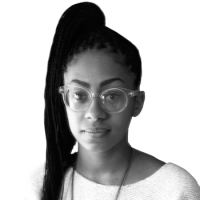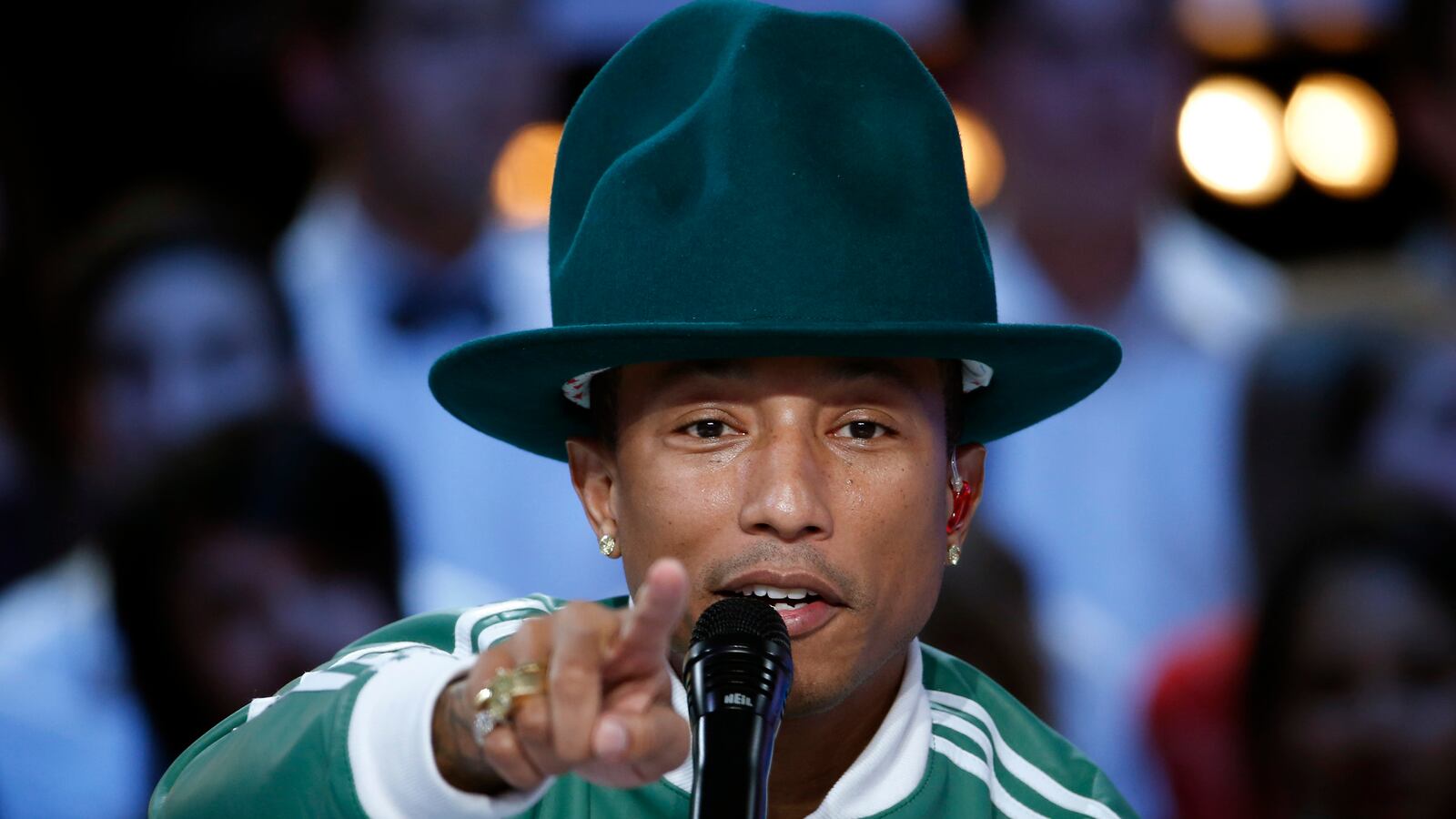Pharrell Williams has been a consistently recognizable presence in pop music and culture for the past two decades. He might have only skirted the periphery of your mind but he’s been around throughout it all, straddling cultures (skate, rap, #menswear, pop) and mediums (music, art, fashion). His influence on music, especially alongside Chad Hugo as one half of the aughts-defining Neptunes, is noted, as is his tastemaker-level involvement in various design endeavors.

But his is an unprecedented kind of star, in that he is a standout red carpet and front row staple who has improbably managed to evade the polarizing effect that so often comes along with celebrity. There are no scandals, and the only conspiracy theory about him attempts to explain how the 40-year-old manages to look so damn young (Cetaphil and cold water, in case you were wondering). Here’s the thing: Pharrell Williams is so pleasant that everyone likes him; at worst, they are indifferent.
Over the past year, Pharrell has begun to synthesize the various tenets of his career into a singular presence, culminating in G I R L, his second solo album and his largest moment thus far. He reached peak omnipresence in 2013 with his appearance on Daft Punk’s song-of-the-summer “Get Lucky,” Robin Thicke’s equally song-of-the-summer “Blurred Lines,” and his own Despicable Me 2-soundtracking “Happy.” He, and his baffling hat, were impossible to miss, and it is in part on the strength of that ubiquity that he claims he agreed to follow up 2006’s In My Mind.
Pharrell took a page from Beyoncé’s successful, if inimitable, book, eschewing traditional album promo in favor of pretty much just showing up everywhere before finally making the surprise announcement of a release date late last month. “‘Blurred Lines’ and ‘Get Lucky’ have defined pop music in 2013, and now we are preparing to launch Pharrell as a global solo superstar in 2014. ‘Happy’ is just the beginning,” Columbia Records chairman Rob Stringer said upon the release of the song last year.
That’s not a bad bet to make. On G I R L, Pharrell makes the truest case for himself as a household name, not because it’s his best work but because it’s his most accessible. The crisp, futuristic, minimalist sound for which he was previously known has given way to a maximalist, lush, groove-driven ethos that he has carefully been developing over the past couple of years and showcased on songs like Frank Ocean’s “Sweet Life” and Kendrick Lamar’s “Good Kid.” Even if it does not represent Pharrell’s most boundary-pushing, genre-defying work, G I R L is perhaps the truest to his voice as a veteran.
Some of his trustiest hip hop collaborators—rappers like Pusha T and Jay Z—are nowhere to be found; instead, G I R L features appearances from crowd-pleasers Justin Timberlake, Alicia Keys, Daft Punk, and, for good measure, Miley Cyrus, whom he’s affectionately described as “his little sister.” The album’s lean ten songs see him refashioning himself not as a visionary but as a reliable creator of bright pop songs with a vaguely positive message. Case-in-point: “Happy”’s contagious energy—and so-Zen-it-hurts lyrics (“Clap along if you feel like a room without a roof / Because I’m happy / Clap along if you feel like happiness is the truth / Because I’m happy”)—earned him an Academy Award nomination, a slot atop the charts, and a seemingly permanent position on mainstream radio. His contagious charm was on full display at the Academy Awards last night where his performance of "Happy" got him a shimmy with a Meryl Streep and a dance in the aisle with Lupita Nyong'o. A room without a roof indeed.
G I R L’s retrogazing sound places Pharrell’s falsetto at the forefront, over Hans Zimmer-assisted strings and classic soul-and-funk grooves that a friend described as essentially “background music.” Building on the success of “Get Lucky” and “Blurred Lines,” the album’s main proposition is a textured, no-holds-barred appropriation of ‘70s-style dancefloor bangers. It’s pleasant enough, but G I R L’s strongest offering is the slow-building “Lost Queen,” which veers a little to the left with a stripped down beat and vocal melody-driven momentum.
But, for his all his musical ability, Pharrell doesn’t have much to say and lyrics have never been his strongest suit. In presenting the album to a group of journalists attending a listening in London, he tacked on a fuzzy description of G I R L as a celebration of women, whom he described as “a phenomenal force in my life and in my career" and "the cornerstone of existence." That’s fair enough in theory, but it ends up being a platitudinal catch-all for the album’s inoffensive but generally uninspired themes.
Accordingly, G I R L sees him encroaching further and further into adult contemporary, with music that is fun for the whole family—that is, minus his predilection for corny sexual references, like “Make the pussy just gush” on “Gush.” It makes sense: Pharrell is newly married, to model and longtime partner Helen Lasichanh, and is experiencing a different kind of career success, one that perhaps replaces ambition and experimentation with contentedness and confidence. He’s happy, and that makes for music that is pleasant, unchallenging, and destined to sell.






